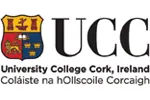

| The award | How you will study | Study duration | Course start | Domestic course fees | International course fees |
|---|---|---|---|---|---|
| BA (Hons) | Full-time | find out | September | EU 3000 | EUR 3000 |
Overview
History at UCC provides an exciting exploration of the past, tracing historical developments from medieval times to the present with special reference to their European, Irish and North American contexts. The coursecan be taken aspart of the BAor the BA International.
Join us - explore the past, understand the present and shape the future. Study and interpret the past and you will discover evidence, solve problems and gain fresh perspectives. Our world is a product of historical forces. We specialise in Irish, European, American, Asian and World History including International Relations and European Studies. You can choose from a variety of specialist options ranging in time from the pre-Viking period to the present; in place from Europe to Asia and the Americas; and in theme from economic development and international relations to ideologies, cultures, social structures, politics and religion.
You will learn the basic skills of an historian and have access to a broad choice of specialist studies, as well as gaining a range of sought-after transferable skills and attributes.
You will learn about various types of history – social and economic history, modern diplomacy, political ideologies, the history of law, art, religion, women, government, business and much else besides.
Course Details
The History course is taken over three years. History can be taken as a single honours degree, as joint honours or as a major or minor option in conjunction with other subjects. You can choose the credit weighting that suits your interests and learning objectives.
Year 1 Modules:
In the first semester,all students are required to take the compulsory module East and West: the Origins of European Identity. You may also select to take one of two options: First Year Inquiry-Based Research Project; Anti-Semitism in Europe from the Enlightenment to the Holocaust.
In the second semester, all students are required to take the compulsory module: The Making of Modern Ireland. Any student who did not choose to take a first semester option must now choose to take one of the following three options:
Year 2 Modules:
Combinations of modules will depend on whether your registration is for single or joint honours, or History as a major or minor component of your degree. You can find out more information at the School of History. Core modules include:
You will also take the Case Study in Research Skills and choose from a wide range of option courses.
Year 3 Modules:
Most students must take two mandatory courses:
In addition, a wide range of options gives you the freedom to shape your final year's work to suit your individual interests.
See the College Calendar for additional information on the Programme and the Book of Modules for further information on modules.
Fact File
Course Code: CK101, CK108
Course Title: Arts
Subject Title: History
College: Arts, Celtic Studies and Social Sciences
Teaching Mode: Full-time
Qualifications: BA (Hons)
NFQ Level: Level 8
Costs: Full-time EU/EEA/Swiss State undergraduate students may be exempt from paying tuition fees. The State will pay the tuition fees for students who satisfy the Free Fees Criteria. In 2016/17 the Student Contribution Charge will be EUR 3,000 and the Capitation Fee will be EUR 165.
2017 Entry Requirements: Refer to CK101
Entry Points: CK101: 350 in 2015. CK108: 475 in 2015
Course Practicalities
Teaching takes place in lectures and seminars, through small group work and by use of project and dissertation research. The school is increasing its use of online learning.
The contact hours, lectures, seminars and research required will vary considerably depending on your registration. See the School of History.
Year 1:A minimum of two hours of History lectures each week in both the first and second semesters.
Year 2:Beyond the core and option modules, a key feature of Year 2 History is the Case Study in Research Skills. You will be offered an extensive menu of case studies related to staff research specialisms. These include Medieval, Early Modern and Modern History concerning different areas of the world.
Year 3:You can continue to tailor your options to suit your interests. You will also participate in a seminar and have the opportunity to write an extended piece of research in the form of a dissertation.
Additional costs may include EUR 150 per year for books plus extra payments for field trips as part of some modules.
Assessment
Written exams will take place before Christmas and in May. Not all modules will have formal examinations. Many modules use other types of assessment including essays, examination, presentation, project work, dissertation writing, book reviews, document analysis and a variety of online methods, including discussion groups, wikis. Other methods are under development.
All our assessment methods provide you with the opportunity to display your knowledge and skills and attributes in different ways.
Application Procedure
Refer to CK101and CK108. First year students choose Arts subjects when registering.
Further Contact Information
Charlotte Holland
T: +353 (0)21 490 2551
2017 Entry Requirements: Refer to CK101
Entry Points: CK101: 350 in 2015. CK108: 475 in 2015
Contact University College Cork (UCC) to find course entry requirements.
Below are some suggested courses at other providers that you may also be interested in:
Molecular Simulations of Weak Polyelectrolytes in Semidilute Regime PhD
Faculty of Science, Charles University
Find out moreIf you do not meet the entry requirements for this course then consider one of these courses from another institution:
There are 338 other courses listed from University College Cork (UCC). A selection of these are displayed below:
Find out more about studying in Ireland